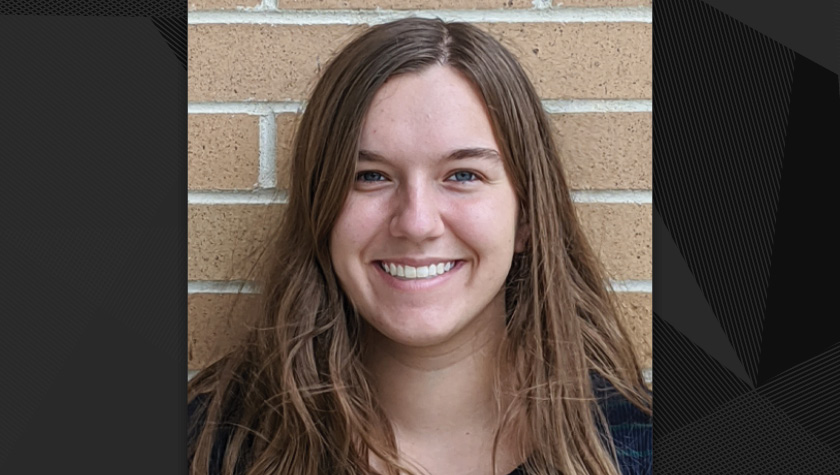
With the undergraduate research award, Carlene Kranjac pursues better treatments for head and neck cancer
By Katie Gerhards
Every year, hundreds of students send in proposals for the Hilldale Undergraduate/Faculty Research Fellowship, one of the most prestigious undergraduate research awards on the University of Wisconsin–Madison campus, offering $3,000 in research support. Awardees are chosen for the significance of their research, meaningful collaboration with a research mentor, and their own intellectual contributions to the project.
This year, one of the 108 fellowships is going to Carlene Kranjac, a University of Wisconsin–Madison School of Pharmacy student in the Pharmacology and Toxicology program, continuing a long tradition of PharmTox students earning the fellowship. In the last three years, 13 PharmTox students earned the competitive funding, including a record of six in 2020.
“The COVID-19 pandemic and safety restrictions limited our students’ opportunities for lab research,” says Kendra Gurnee, PharmTox program coordinator. “Student researchers like Carlene have shown remarkable resolve to keep their innovative projects going and make important advances.”
Kranjac’s project takes place in the lab of Deric Wheeler, an associate professor in the School of Medicine and Public Health’s Department of Human Oncology, with the aim of improving therapies for head and neck squamous cell carcinoma (HNSCC) patients.
Since her first year on the UW–Madison campus, Kranjac has been researching in the Wheeler Lab, which is focused on understanding mechanisms of resistance to molecular targeting agents directed against receptor tyrosine kinases, specifically for cancers of the head and neck and breast.

With support from the Hilldale Fellowship, Kranjac aims to differentiate the environment of a tumor placed in its usual anatomic location as compared with another location and to determine predictive biomarkers for the tumor cells, and then compare her findings against documented human HNSCC signaling.
When Kranjac learned about the PharmTox program, she was a pre-pharmacy student planning to enroll in the School of Pharmacy’s PharmD program. The bachelor’s degree in Pharmacology and Toxicology would let her further explore how drugs act on the body and delve further into research before starting pharmacy school, she says.
“This program was perfect for me as I had always found the interactions of medications within the human body fascinating,” she says. “It also gave me the chance to explore other healthcare professions.”
Now entering her second and final year of the PharmTox program, which encourages students to work with faculty mentors around campus to pursue their unique research interests, Kranjac’s career goal has shifted and she is applying to medical schools.
“Due to my research experience, I have become very interested in studying oncology in my future career,” she says, which was reaffirmed after shadowing several oncologists at UW Health.
Although she was involved in research before she enrolled in the PharmTox program, she says the curriculum has helped her to develop her research and communication skills.
“The coursework of the program, particularly biochemistry, is extremely relevant to many concepts that I encounter in my lab,” she says. “I anticipate continuing to develop more skills as I enter my second year of the program.”